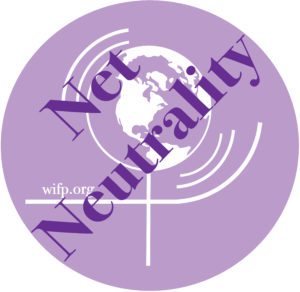7 Realities
“WIFP’s Seven Realities for a Respectful and Peaceful Communications System: A New Philosophy of Communications”
by Donna Allen and Dana Densmore 1977
1) People make their judgments on the basis of the information they have at a given time. This reality is respectful: it says people are rational. It is peaceful: if you disagree, don’t attack; instead, think, ” If I had her information, I’d come to the same conclusion.” And it suggests a constructive course of action: offer your information.
2) Each person is the best judge of his/her own best interest. Don’t force your judgment on others by implying that you know more about their self interests than they do. That person has to live with the results, not you. Again, a constructive course of action: offer your information.
3) Media owners give us the information they think it is important for us to know. Respectful: this is just what you do in your media or would do if you had their media. Peaceful: don’t attack; it is not unlawful to own media and tell what you think is important. Alternative: work for equal ability to communicate to the whole public.
4) Media do not mirror society. They represent only the owner’s views. (When they tell about us, they are not giving our information but their own information about us, reflecting their view of us.) Media mirror only their owners — a tiny segment of society.
5) For the public to obtain the information of the majority, people must be able to speak for themselves. Respectful: lets people make their own case direct to the public. This reality provides a basis on which the communications system may be restructured to yield the information the nation needs to govern itself.
6) Our political power is based on the number of people we each can reach with our information. If you own media and I do not (or your media reach more of the public than mine), you can portray my viewpoints to people I cannot reach with my corrections. You have more political influence and effect than I. Possession of a means of communication is thus the source of political power. The size of one’s media outreach audience measures the amount of political power one has.
7) Democratically equalizing political power among us would require that we all have equal means of reaching the public — when we wish and in the way most suitable to our message, to communicate the information we each want the public to take into account in its political decision-making.
© Copyright 1977 Women’s Institute for Freedom of the Press, Donna Allen and Dana Densmore
 The Women’s Institute for Freedom of the Press
The Women’s Institute for Freedom of the Press
